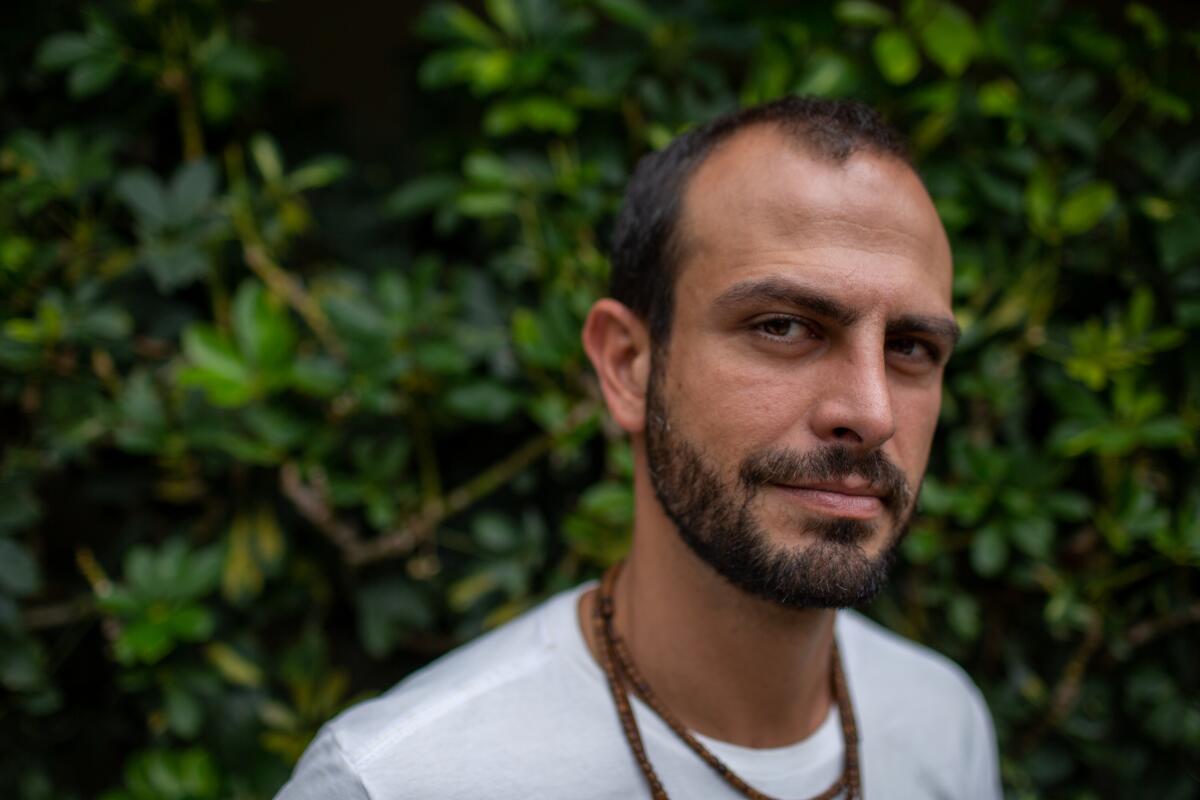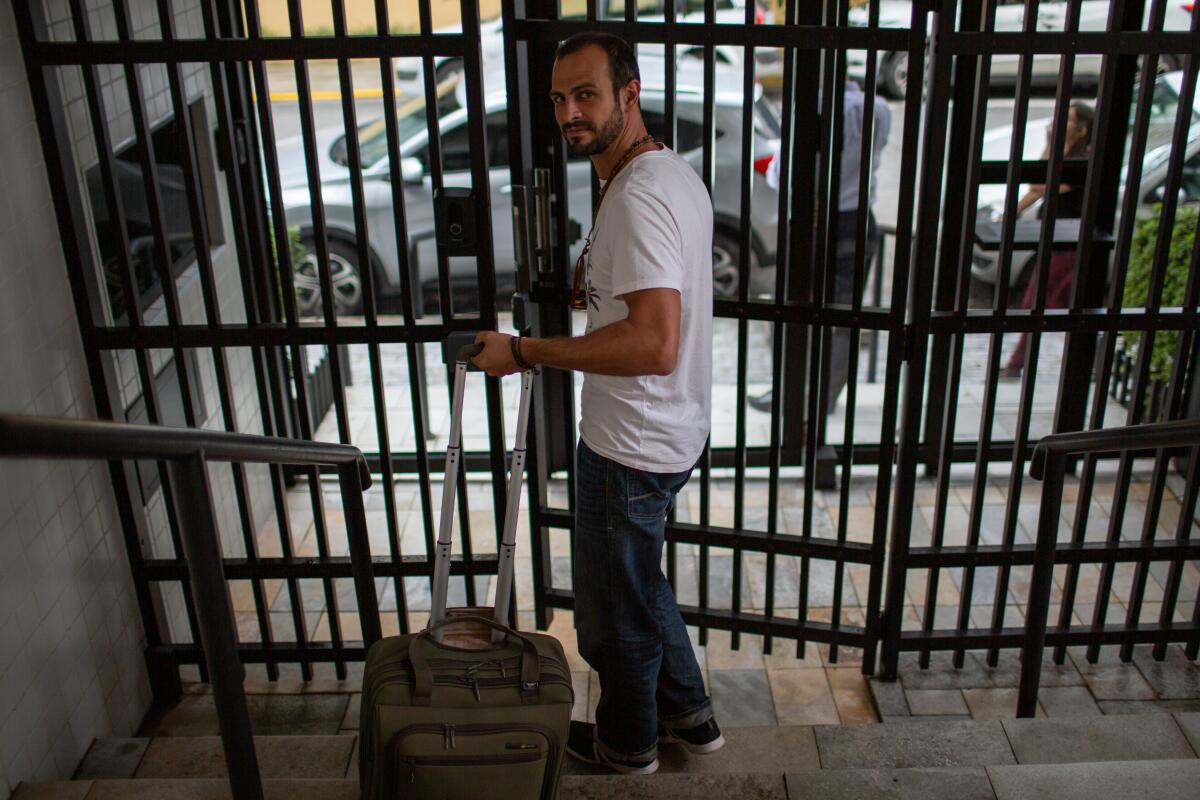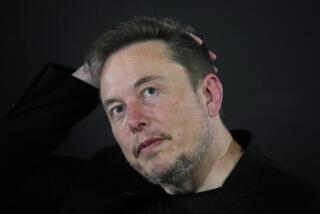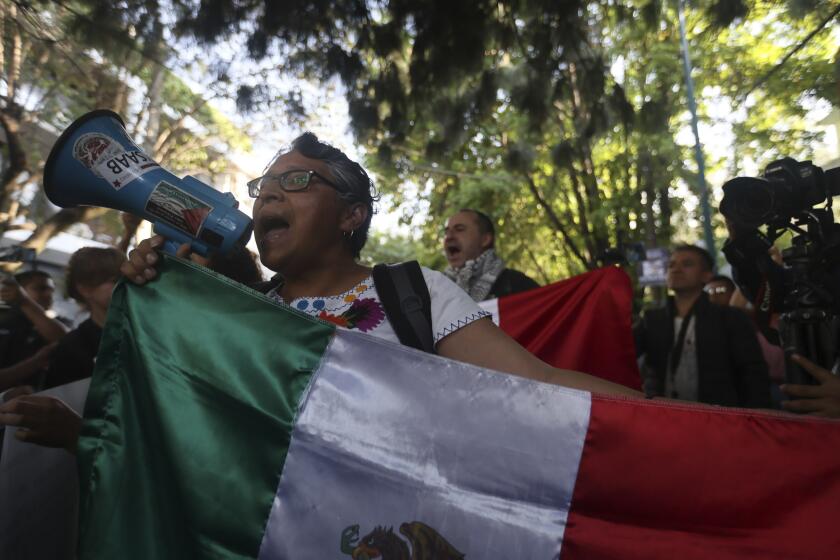He helped put out fires in the Amazon. Months later, he was arrested for arson

The way Marcelo Cwerner tells it, he was leading a boat tour last fall near the village of Alter do Chão, a popular spot for tourists in the Brazilian Amazon, when he spotted a large column of smoke billowing from the forest.
He grabbed his cellphone to alert other members of the volunteer fire brigade he served on, and found out they were already on their way.
For the next four days, Cwerner ferried dozens of firefighters in and out of the area until they finally extinguished the flames.
Despite the victory, the state police did not view him or the other volunteers as heroes.
Two months later, in the early dawn of Nov. 26, officers arrived at his home with a search warrant. They confiscated his computer, cellphone and other items and arrested him on suspicion of setting the very fires he had helped put out.
State police allege that Cwerner, 36, was part of a conspiracy to disseminate images of the fires with the aim of generating international sympathy and attracting donations for the brigade and the Health and Joy Project, an affiliated nonprofit whose headquarters were also raided by authorities.
Lawyers for Cwerner and the three other volunteer firefighters arrested that day say there is no evidence to support that theory and that the investigation is part of a larger crackdown on critics of the government’s policies regarding the Amazon.
President Jair Bolsonaro took office in early 2019 promising to give agribusiness more opportunity to exploit to the world’s largest rainforest, which was already being cleared at increasing rates for logging, mining, farming and grazing cattle.
He has framed the issue as one of national sovereignty and shown contempt for outsiders who point out that the forest serves the entire world as a massive sink for planet-warming greenhouse gas emissions. Last summer, as fires were raging and French President Emmanuel Macron called on wealthy nations to help put them out, Bolsonaro demanded an apology and rejected offers of international aid.
Some of his worst scorn has been reserved for nongovernmental organizations, which often team up with indigenous communities to protect the Amazon.
During his campaign for president, he vowed that such NGOS would get no government funding and that indigenous communities would not get “one centimeter” of protected land.
Though scientists have attributed the fires in the Amazon to efforts to clear forest for farming and other uses, Bolsonaro has suggested that NGOs could be setting the fires in retaliation for losing funds under his administration.
The morning after police in the state of Pará arrested the brigadistas, as the volunteer firefighters are known, Bolsonaro tweeted: “In October, I declared that many fires could be linked to NGOs. Now the Pará police are arresting some suspects for the crime.”
That same day, federal prosecutors investigating the fires issued a news release stating that they found no evidence that “pointed to the participation of brigadiers or civil society organizations.”
Two days after the firefighters were arrested, the same local judge who authorized the “preventive detention” of the brigadistas determined it was no longer necessary and released the four men while the investigation continued.
They walked out of jail with shaved heads holding hands and were greeted by their families and television cameras.
Police in Pará say the evidence against the firefighters includes wiretaps as well as a video that purportedly shows members of the brigade starting a fire.
The video, according to the police, was discovered on YouTube but has since been taken down and was not shared with the media.
Aliança, a network of pro-bono attorneys who are defending Cwerner and his colleagues, says it has not been shown any of the evidence.
The nonprofit Instituto Aquífero, which oversees the fire brigade and whose budget was managed by Cwerner, told the Brazilian news portal G1 that the video may be part of a training activity on “control burns,” which are used to contain wildfires.
Beto Vasconcelos, a former national secretary of justice who founded the defense network, said the case has implications far beyond the lives of the firefighters.
“If these arrests can happen to white, middle-class Brazilians, they can happen to anyone,” he said.
Also drawn into the conflict is the Brazilian branch of the World Wildlife Fund for Nature, better known as the WWF. After the firefighters were released, Bolsonaro told reporters that actor Leonardo DiCaprio supplied the group with money “to torch the Amazon.”
Police say payments that the Brazilian WWF made to the fire brigade were for photographs of the fires. But the WWF issued a statement saying the money was for firefighting equipment.
The WWF and DiCaprio also denied that the actor had made a donation. In an Instagram post, he said: “While worthy of support, we did not fund the organizations targeted.”
The Pará state government released a statement calling the investigation into the firefighters an “isolated episode, which does not disrupt the conduct of hundreds of NGOs working together with the government of Pará.”
NGOs, it added, “are fundamental for the preservation of forests in the State.”
As for Cwerner, he and his wife and their two young sons left Alter do Chão and moved back to São Paulo, where they are from. For now, he’s hired a small team to keep his boat tour and hospitality company running while he manages it remotely.
Cwerner and his colleagues, who were forced to hand over their passports when they were freed from jail, are required to appear in court every month in São Paulo and to remain in their homes at night unless they’re working.
Police have not said when they expect to conclude the investigation. Once that happens, public prosecutors will decide whether to press charges against Cwerner and his colleagues, who could face up to five years in prison if convicted of damaging “environmental protection areas.”

As the case has dragged on, he has tried to find comfort in the attention it has drawn to the destruction of the Amazon.
“I now understand that my mission just got wider,” he said.
More to Read
Start your day right
Sign up for Essential California for news, features and recommendations from the L.A. Times and beyond in your inbox six days a week.
You may occasionally receive promotional content from the Los Angeles Times.







